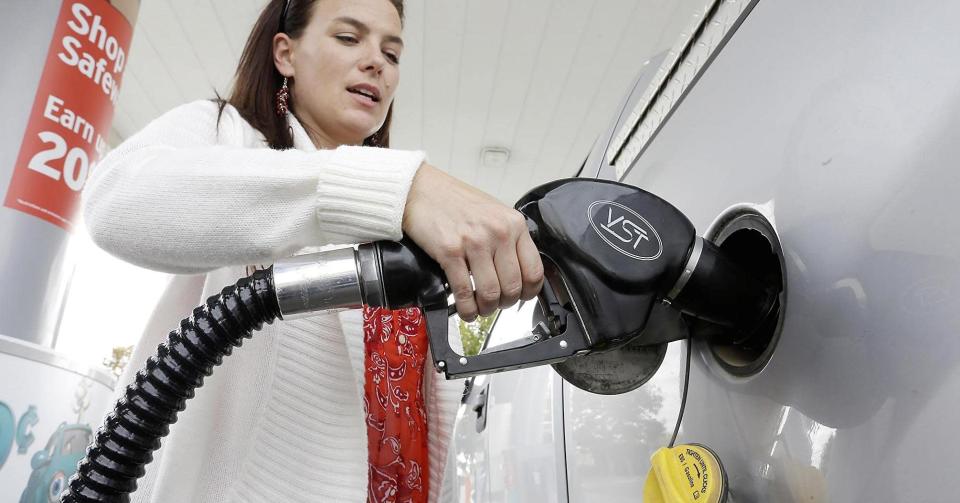Will retail sales reveal truth about cheap gas?

Whether consumers really are being helped by cheaper gasoline may show up in Friday's retail sales data. Economists expect October retail sales to have increased by 0.2 percent, and the control number-without gasoline, autos or building materials-is expected to have risen by 0.4 percent. That compares to a decline of 0.3 percent in September and a dip in control of 0.1 percent. "I discount this view that a penny saved in gasoline is a billion dollars in consumers' pockets. My view is a lot of people will keep their cash in their pockets and not spend it. Somehow this number should give us a clue to some degree on that logic," said Adrian Miller, director of fixed-income strategy at GMP Securities.
Economists have been looking at the impact of falling fuel prices on the economy, and many expect a benefit of several tenths of a percent on fourth-quarter GDP. But where the savings in gas prices show up in the economy is up for debate. Wal-Mart (WMT), in reporting its first sales increase since 2012 Thursday, said lower gasoline prices were clearly a benefit for the biggest U.S. retail chain. But other stores have made no such claims, and some analysts expect it's just as likely to show up at the super market.
Read More The economy is 'stuck,' one CEO says Miller said this retail report is the first glimpse at fourth quarter consumption. "That's a 50-basis point rebound (expected in control) ... if you're going to make the case it's going to be notably additive to GDP, you're going to have to see that notably higher," Miller said. "Odds are we'll see it come in in line, and we'll see a snap back in the computer, electronics, and apparel-that kind of stuff." Deutsche Bank chief U.S. economist Joseph LaVorgna said even though retail sales account for only about a quarter of total consumer spending, the data is highly correlated with overall consumption. He said retail control should be much firmer than the headline number that was affected by falling gasoline prices and flat car sales.
Read More Want to fix retail? Do this...
The retail sales number is seen as the most important data point this week, but there is also import prices at 8:30 a.m., consumer sentiment at 9:55 a.m. and business inventories at 10 a.m. "It should give us a sense whether the consumer really wants to open up their pocketbook," said Sam Stovall, chief equity strategist at S&P/Capital IQ. Stocks were barely changed Thursday. The Dow (Dow Jones Global Indexes: .DJI) was up 40 points at at 17,652, while the S&P (^GSPC) was up one point at 2,039, and the Nasdaq (^IXIC) rose five points to 4,680. But the small-cap Russell 2000 lagged. The Russell was off 11 at 1175.
Read More Oil collapses as OPEC stands back and US booms The energy sector was the worst performer, as West Texas Intermediate fell $2.97 a barrel to $74.21. It was down 1.4 percent, but the consumer discretionary sector rose 0.6 percent and was the second best performer. Wal-Mart was up 4.7 percent Thursday. "I think the market is basically just trying to catch its breath after hitting five consecutive all-time highs," Stovall said Prices at the pump fell to a national average of $2.91 per gallon Thursday, down from $3.19 a month ago. But RBOB gasoline futures on the Nymex told an interesting story. The January contract settled $1.98, the first close below $2 since Sept., 2010.
What to watch Besides U.S. data, traders are watching GDP in the eurozone. There are also three Fed speakers. St. Louis Fed President James Bullard speaks at 9:10 a.m. EST, and Vice Chairman Stanley Fischer and Gov. Jerome Powell are on a panel at 4 p.m. EST.

